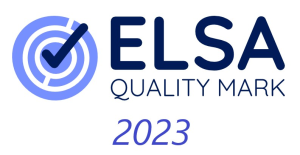The SEND Department
SENDCO
Mrs Victoria Abbs (vabbs@stmichaels.bhcet.org.uk)
Assistant Headteacher - SEND and PP Lead
Mrs Michelle Booth (mbooth@stmichaels.bhcet.org.uk)
SEND Admin
Mrs Debbie Robinson (drobinson@stmichaels.bhcet.org.uk)
Progress Support Assistants (PSA):
Mrs Julie Campbell
Mrs Cath Brown
Miss Andrea Jackson
Mrs Julie Mitchell
Mrs Juliet Richardson
Mrs Avril Whittle
Our department:
The Special Education Needs and Disabilities (SEND) department works with all students who have a SEND need or diagnosis. This includes children with physical disabilities, social, emotional and mental health needs and those with cognition and learning or communication and interaction needs.
The SEND department is located in the Good Shepherd Centre (GSC) and all SEND students have access to the GCS on a daily basis via their GSC pass, if needed. The GSC is a quiet environment where children can work with support from a PSA, where homework can be completed or where students can access intervention sessions. Regular intervention sessions include handwriting, Maths, reading and GCSE recall and revision.
The GSC also offers homework club, chill club and Minecraft Club. Students also come and work on social skills, dexterity activities and mindfulness.
The SEND department is the point of contact for all SEND needs and we work closely with many different external agencies. These include:
Stockton Local Authority's Local Offer
Additional information for all SEND in Stockton, can be found here.
Alliance offer support for children with anxiety or worries around school. This includes Cognitive Behaviour Therapy.
Hartlepool and Stockton’s Needs Led Neurodevelopmental Pathway - NENC Tees Valley (icb.nhs.uk)
The MAAT Pathway team offer support to school for children who have Autistic traits. This service allows for assessments to be done prior to diagnosis.
Help and support services - Stockton-on-Tees Borough Council
Help and Support (formally known as Early Help) offer support for children and their families in a broad range of areas including behaviour, routines, bullying and much more.
https://www.youngminds.org.uk/
CAMHS (Children and Adolescents Mental Health Service) works to support families around a child’s mental health needs. They also offer counselling for such concerns as trauma and PTSD.
Support for neurodiverse children and young people
Further information about Emotional Wellbeing and Mental Health can be found on the school website.



Our Emotional Wellbeing and Mental Health Support Team
Mrs C Carey – Mental Health Lead
Mrs V Abbs - SENDCo
Thrive Facilitators
Mrs M Sutton
Mental Health help for your Child
How to talk to your Child about Mental Health
Child Bereavement - Support Videos
Child Bereavement UK have identified a range of video’s (see below) which may be useful to support children and young people. Some are older and available through Child Bereavement UK website and some are more recent and have been made in response to the pandemic. There are a lot more available through the website and CBUK’s Youtube channel but seem to be appropriate in the current circumstances.
Supporting bereaved children through difficult times. Child Bereavement UK
Supporting a bereaved child with autism spectrum disorder
Remembering someone who has died
Useful LINKS
Alliance Psychology Service - Trailblazers
Autism Support
DAISY CHAIN - To contact the care team, please call 0800 031 5445
Alternatively, complete ENQUIRY FORM and a member of the team will be in touch with you.
Barnados
CAMHS - Child & Adolescent Mental Health Service
Coronavirus: How to protect your mental health
Mental Health Crisis
OCD
Sensory
Hand Washing Tips for People With Sensory Difficulties
Activities
Self-help Guides
Understanding Self-Harm
Websites
Anna Freud - Offers support and advice to parents and carers
Bereavement UK - Supporting Bereaved Children
CAMHS - Self-help resources to download to help your child
Hart Gables - To help support Parents and Carers with issues around sexuality and gender
Headlight Project - Teaching Children About Mental Health
Headspace - Mindfulness and Meditation Techniques
Kooth - Free, safe and anonymous support
Mental Health at Work - Supporting Your Mental Health While Working From Home
MIND - For Better Mental Health
NHS - Every Mind Matters (Self-help for Adults and Children)
Qwell - Online Emotional Wellbeing and Mental Health Support for Adults
Rise Above - Website Created by Young People, for Young People
Young Minds has a Parent/Carers Guide with A – Z list of lots of common mental health difficulties such as Exam Stress, Self-Harm, Low mood, Panic and Anxiety, sleep and Low self Esteem and other difficulties.

What is SEN?
Your child may have special educational needs (SEN) if they find learning more challenging than others and need extra support to achieve their full potential.
These difficulties can be barriers to learning. Our school will assess all children to identify their strengths and needs and how we can best support them.
Children who need extra help with their learning may receive additional support under one of the following categories:
- Special educational needs (SEN) support
- An education, health and care (EHC) plan
What is SEN support?
SEN support describes the additional help that assists children to access the curriculum.
What are EHC plans?
If your child has more complex needs, they may need a more intensive level of specialist help than SEN support caters for. In these cases, your child might be assessed for an EHC plan.
An EHC plan is a legal document that sets out the support that education, health and care providers must provide.
FAQs
How will the school decide what type of support my child receives?
Every child’s needs are different and may change over time. Therefore, the school will assess each child’s needs closely to identify which support is right for them. The school will also regularly review the support your child receives to see what is working and what isn’t and incorporate your views on this too.
How do I know if my child needs SEN support?
If your child is not making expected progress for their year group, they may need SEN support. The school will discuss your child’s needs with you before placing your child on SEN support.
Where can I find out more information?
Our school’s SEN policy and information report set out more detailed information about the support available for children with SEN and disabilities are available on our school website.
Contact us
If you have any questions about the support your child is receiving, or about SEN more generally, please speak to your child’s class teacher or Mrs Victoria Abbs our school’s special educational needs co-ordinator (SENCO).
External links
See the government’s overview of support for children with SEND.
https://www.gov.uk/children-with-special-educational-needs
IPSEA is a charity that helps parents and professionals to support children with SEN and disabilities:
